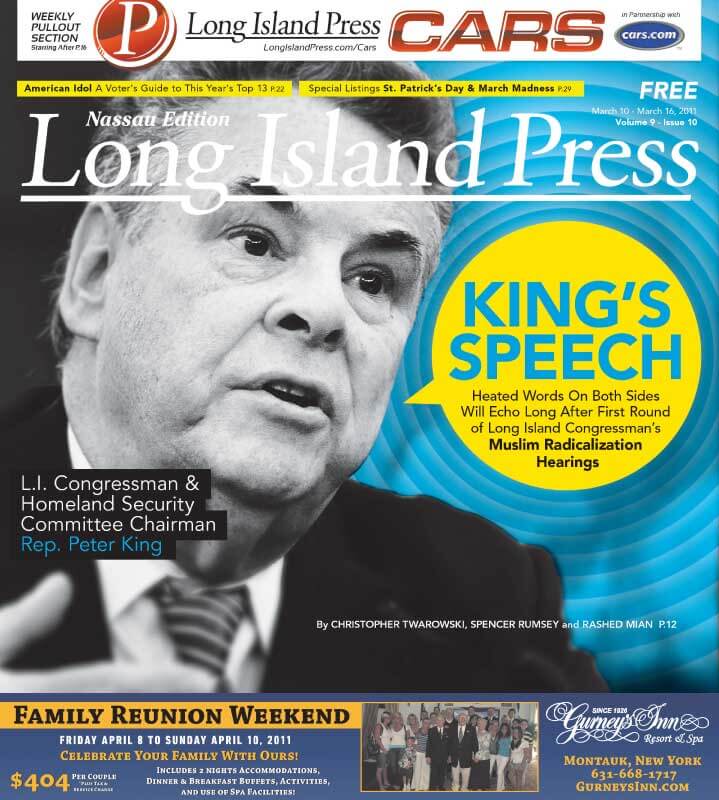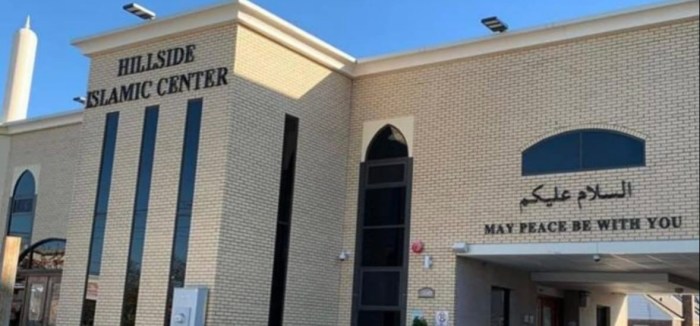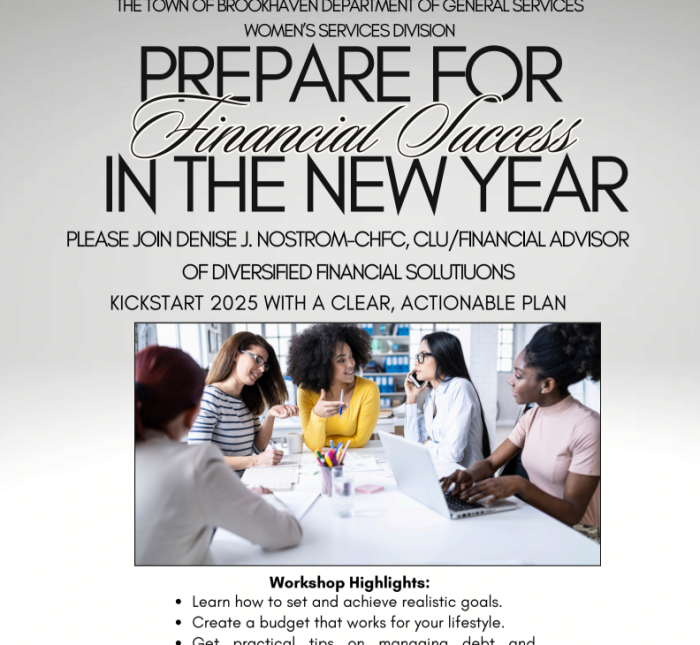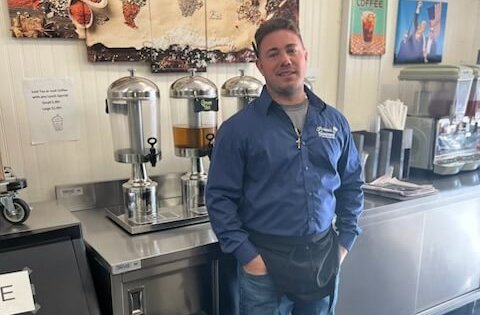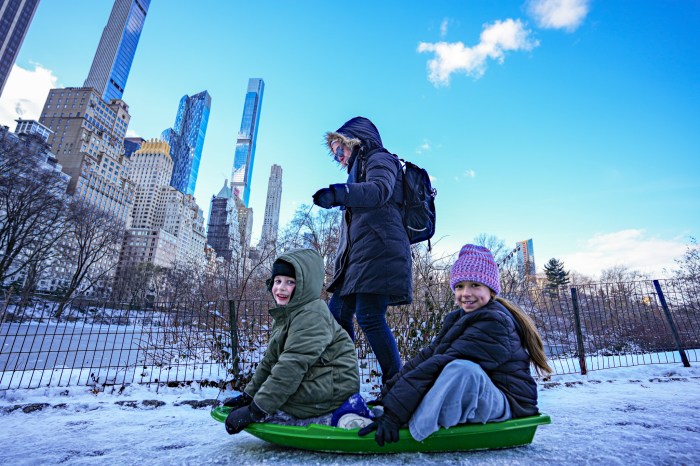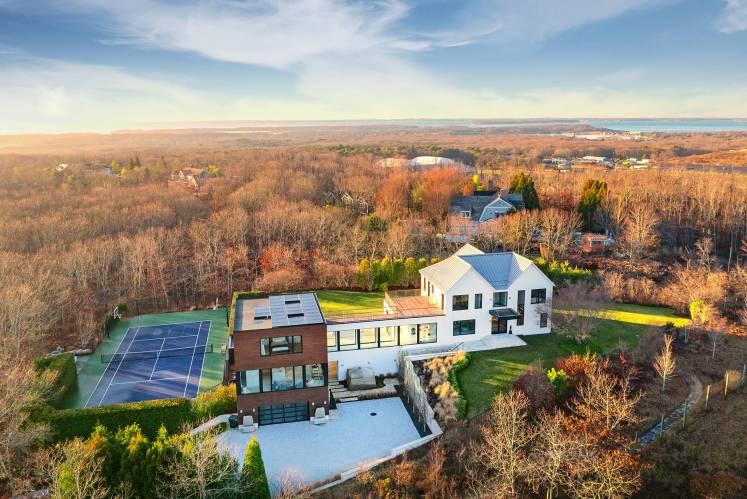
Three blocks from where would-be Times Square Bomber Faisal Shahzad attempted to detonate an SUV loaded with explosives and slaughter hundreds, if not thousands, of people last May, about 500 demonstrators of various races, ages, religions and political affiliations last Sunday cheered and shouted in the pouring rain.
Several dozen speakers, with as many varied backgrounds—including leaders from the Muslim, Jewish, Catholic and Buddhist communities—took turns addressing the audience packed tightly inside police barricades between 42nd and 40th streets on Broadway. Officers ushered passersby along the sidewalk. A Muslim woman wearing a hijab and wrapped in an American flag sang “The Star-Spangled Banner.” Many in attendance clutched umbrellas.
The event, dubbed the “Today, I Am A Muslim, Too” Rally, was the brainchild of rap-media mogul Russell Simons and Rabbi Marc Schneier, president of the Foundation for Ethnic Understanding. It was held in support of interfaith solidarity and in protest of the first in a string of hearings that are to begin this week by Congressman Peter King (R-Seaford), the chairman of the Homeland Security Committee. Officially the hearing is billed as “The Extent of Radicalization in the American Muslim Community and that Community’s Response.”
Attendees applauded as the heads of various religious, nonprofit and civil liberties groups spoke against what they deemed the stereotyping of the Muslim community and the bigotry caused by anxiety, misinformation and ignorance.
See photos from supporters at the NYC rally
See photos from earlier “Pray-In” at Rep. Peter King’s District Office
“To single out Muslim Americans as the source of homegrown terrorism and not to examine all forms of violence, violence that is motivated by extremist beliefs, that, my friends, is an injustice!” boomed Schneier, to resounding applause. “American Muslims are as fine Americans as any other faith community. And to hold hearings and not to invite other faith leaders to testify on behalf of the American Muslim community, that, my friends, is an injustice!”
“Today we are bigger than Charlie Sheen,” announced Simmons, to more huzzahs. “We are the number-one trending topic on Twitter and on Facebook.”
This wasn’t the only rally. At the same time, several blocks away, on the corner of 38th and Seventh Avenue, a similar crowd—albeit with a different message—cheered and shouted in the drenching rain.
“We Support Congressman Peter King,” declared one sign.
“Never Forget 9/11: No Jihad Mosque,” read another.
“No Sharia Law in the USA!” demanded yet another.
Cars honked as they flew by. Onlookers snapped photos. Demonstrators likewise cheered at their keynote speakers.
“To me, Peter King is an American hero,” Andy Sullivan, a 44-year-old construction worker wearing a blue hardhat, told the Press. “The guy deserves all the credit in the world. He’s standing up against all the political correctness and all these leftist groups that are trying to attack good, God-fearing Americans who want nothing more but to protect the Constitution of the United States.”
Read Long Island Press Publisher Jed Morey’s commentary on the Peter King hearings
Sullivan founded 9/11 Hard Hat Pledge, a group of union construction workers who vow not to work on Park51, otherwise known as the Ground Zero Mosque in Lower Manhattan, near the former site of the World Trade Center. Speaking at the rally uptown was Imam Feisal Abdul Rauf, founder of the nonprofit Cordoba Initiative—described as “a multi-national, multi-faith organization” on its website—and mastermind of the Park51 project, which will also include an Islamic center.
To be sure, these aren’t the first, or only, rallies sparked by King’s hearing—anti-King and anti-hearing demonstrators held a protest in the parking lot of King’s district office in Massapequa Park two weeks ago. They too were countered by pro-King and pro-hearing supporters.
Nor will these rallies be the last. King plans to hold several more hearings on the subject throughout the next 16 months.
The radicalization hearing has incited rage and passion on both sides: those who believe Muslims are being singled out, stereotyped, racially profiled, and the hearing’s supporters who believe the forum will discover answers and preemptively thwart potential future attacks from homegrown terrorists, such as Shahzad and a slew of others who by fate or by their own incompetence were unsuccessful in their quests.
Dozens of news articles and op-eds have been written on the subject in recent weeks. Cyberspace—as Simmons pointed out, namely Twitter and Facebook—has been burning up about it. The hearing has been the focus of talking heads on national and international television and radio broadcasts since King’s announcement in December. Even the White House has been forced to react, with President Barack Obama, dispatching his deputy national security advisor Denis McDonough to a Virginia mosque on the same day as last weekend’s New York City rallies, to reassure Muslim Americans that “we will not stigmatize or demonize entire communities because of the actions of a few.”
Modern-day McCarthyism, as critics charge? Or a focused investigation into what could be America’s single-most lethal threat: homegrown terrorism?
One thing’s for certain: The debate will continue long after Thursday’s hearing. And in the center ring, calling the shots, holding court, fueling the fire, is Long Island’s lone Republican Congressman.
King called for the hearings, he says, because law enforcement officials have told him the Muslim American community have not been cooperative in counter-terrorism investigations.
“Al-Qaida has adjusted its tactics, and that’s why traditional intelligence doesn’t work,” he tells the Press, in defense of his hearings. “They’re now recruiting people who are legally in the country, people beneath the radar screen, who are not involved in any type of radical activity. And the way we find them is by having people in the community bring them out. And that’s why I want the hearings, for people to know there is a real threat.”



